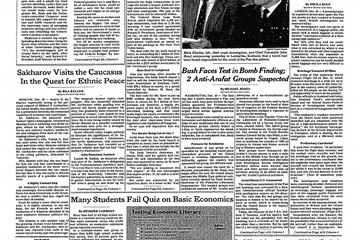Understanding the Significance of Clarion in Today’s Context

Introduction
The term ‘clarion’ has evolved in its usage, traditionally defined as a clear and shrill sound produced by a trumpet or horn. In contemporary contexts, it has come to symbolize a call to action or a strong message that demands attention. Understanding the significance of ‘clarion’ in today’s fast-paced communication landscape is crucial, particularly as society navigates complex issues such as climate change, political unrest, and social justice.
Current Events and Context
In the current era, the phrase ‘clarion call’ is frequently utilized in various discussions. Most notably, global climate movements have emerged, exemplifying the term’s relevance. Activists and organisations worldwide are issuing a clarion call for immediate action to combat climate change, urging governments and corporations to adopt sustainable practices. For instance, the latest reports from the Intergovernmental Panel on Climate Change (IPCC) highlight the urgent need for reduced carbon emissions and the accelerated implementation of renewable energy sources. These reports act as a modern clarion for policy makers and citizens alike.
Moreover, in the realm of social justice, movements striving for equity and representation are also characterised as a clarion call. The Black Lives Matter movement, for example, used this rhetoric effectively to mobilize supporters and create global awareness regarding racial injustice. The voices of change-makers in this movement serve as a clarion reminder of the ongoing struggle for equality and the importance of sustained advocacy.
Conclusion and Significance for Readers
As society continues to grapple with multifaceted challenges, the term ‘clarion’ remains profoundly relevant. It encapsulates a demand for clarity in communication, calls to action for significant change, and the moral imperative for individuals and institutions to respond thoughtfully and decisively. Readers should pay attention to clarion messages in media and activism, recognising them not merely as calls but as crucial indicators of societal priorities that require collective engagement. The ability to respond to these calls can shape the future and inspire transformative movements, making the understanding of ‘clarion’ vital in our contemporary discourse.








